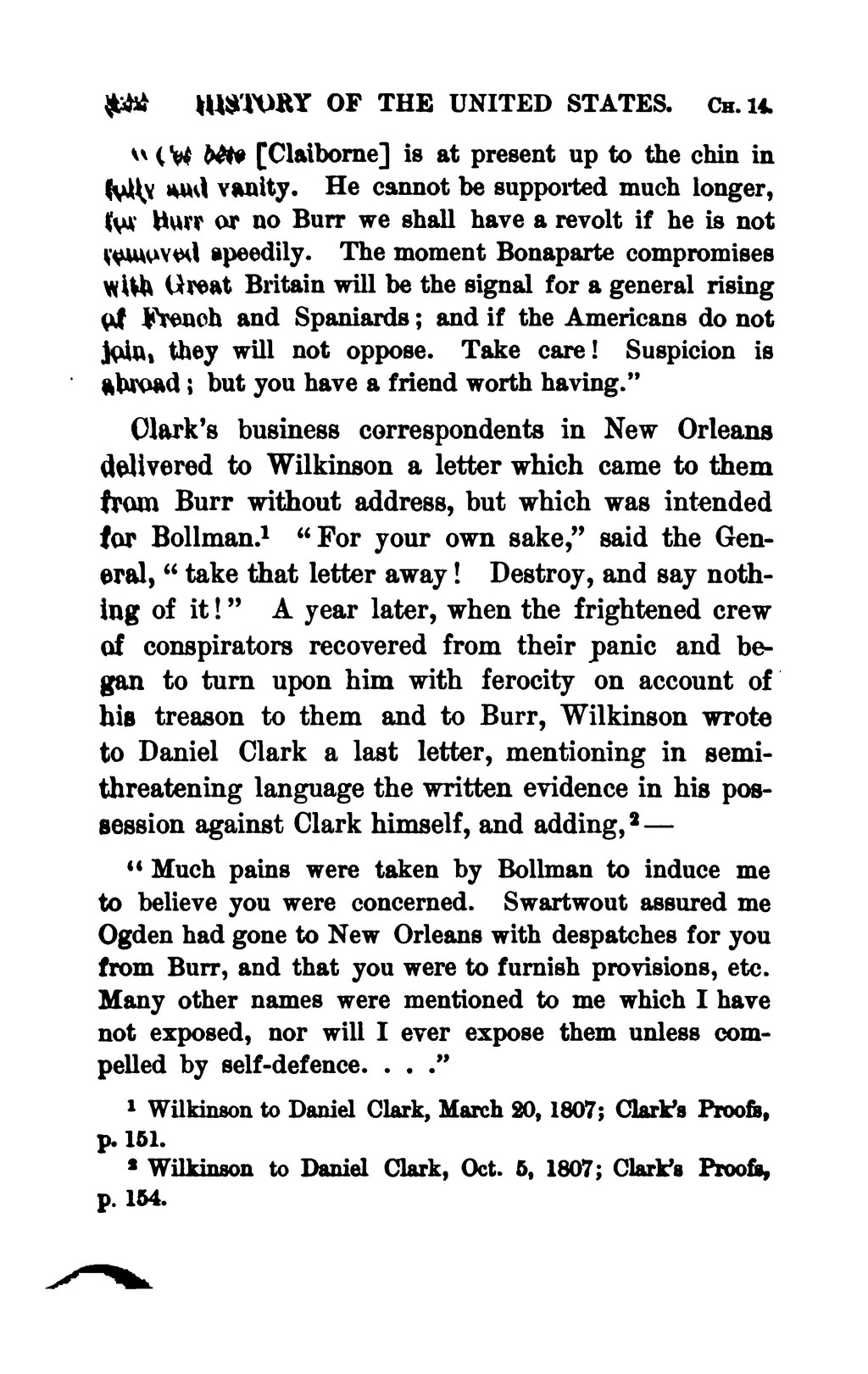322
HISTORY OF THE UNITED STATES.
Ch. 14.
- "Cet bête [Claiborne] is at present up to the chin in folly and vanity. He cannot be supported much longer, for Burr or no Burr we shall have a revolt if he is not removed speedily. The moment Bonaparte compromises with Great Britain will be the signal for a general rising of French and Spaniards; and if the Americans do not join, they will not oppose. Take care! Suspicion is abroad; but you have a friend worth having."
Clark's business correspondents in New Orleans delivered to Wilkinson a letter which came to them from Burr without address, but which was intended for Bollman.[1] "For your own sake," said the General, "take that letter away! Destroy, and say nothing of it! "A year later, when the frightened crew of conspirators recovered from their panic and began to turn upon him with ferocity on account of his treason to them and to Burr, Wilkinson wrote to Daniel Clark a last letter, mentioning in semi-threatening language the written evidence in his possession against Clark himself, and adding,[2]—
- "Much pains were taken by Bollman to induce me to believe you were concerned. Swartwout assured me Ogden had gone to New Orleans with despatches for you from Burr, and that you were to furnish provisions, etc. Many other names were mentioned to me which I have not exposed, nor will I ever expose them unless compelled by self-defence. . . ."
